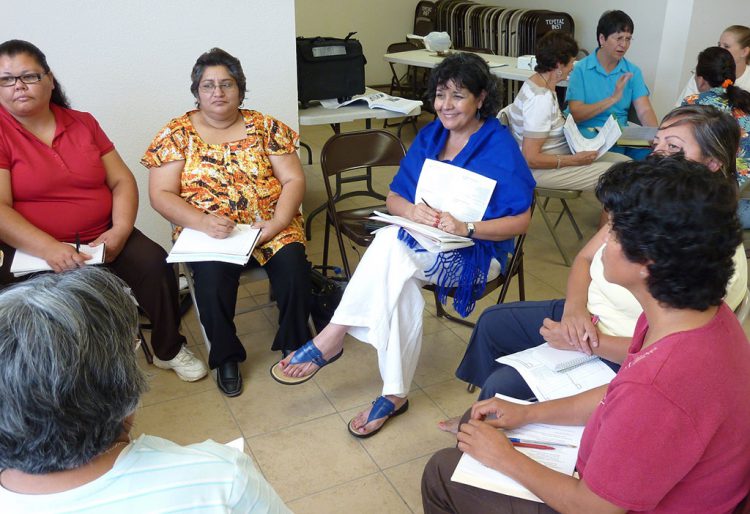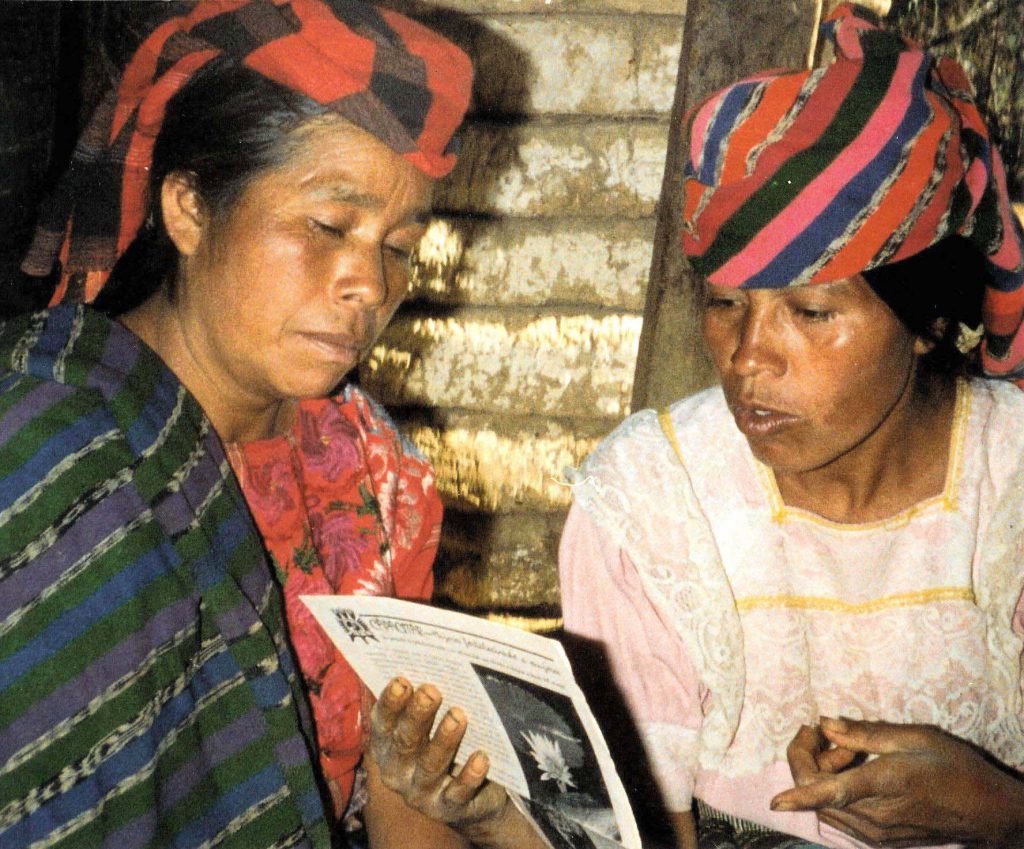
FAQs:
Frequently Asked Questions
What is Capacitar?
Capacitar is:
- A spirit of empowerment and solidarity
- A network connecting people on 5 continents
- An organization—Capacitar International—based in California
- A team of international trainers
- People in over 45 countries who live with the Capacitar spirit—using practices in their lives and multiplying them in their families, work and communities.
How many people are part of Capacitar?
The Capacitar network includes hundreds of thousands of people in five world areas (North and South America, Africa, Asia, the Middle East and Europe) who have learned Capacitar practices and incorporated them into their lives, work and communities. A small staff in California directs the 501c3 nonprofit organization, Capacitar International. Capacitar International has a training team that responds to invitations for trainings and represents the organization in the field. In many countries Capacitar local teams and groups of multipliers have developed their own organizations that sponsor ongoing gatherings, workshops and outreach.
What does ‘solidarity’ mean to Capacitar?
Since its founding in 1988, Capacitar has accompanied grassroots people in places of war, violence, poverty and disaster. We have walked in solidarity with those working for justice, peace and reconciliation in their communities. Because of our two-fold commitment to heal ourselves and heal our world, we have gained the trust of people living in places of trauma and violence. The credibility of Capacitar with so many grassroots people is directly connected to this commitment of personal and societal healing and transformation.
How can Capacitar effectively work with so many different cultures?
Capacitar work embodies a fundamental respect for and sensitivity to cultures and traditions. Using popular education methods, Capacitar develops in its trainers and participants principles of multicultural understanding. In Capacitar workshops facilitators create an atmosphere of respect for cultural systems including: language, boundaries, gender issues, learning styles, mores and customs. When Capacitar receives invitations from grassroots groups or organizations to come to their country or region, trainers work closely with hosting groups to learn about their culture and socioeconomic experience so that workshops and methods meet the needs and reality of the people.
How do people in different cultures react to learning the energy healing practices?
Most grassroots people are sensitive to energy and are grateful to learn ways to connect with the energy in their own hands. The practices Capacitar teaches come from ancient cultures as well as current research. Energy is the basis of most traditional healing systems. In modern times, many people have lost the fundamental connection with their own body wisdom and their capacity to use their energy for healing. In our trainings people are encouraged to reconnect with this source and to ask their community elders what they traditionally did in their culture to heal their bodies and spirits.
Does Capacitar teach ‘New Age’ things?
Capacitar practices (i.e., Acupressure, Tai Chi, Pal Dan Gum, Fingerholds, etc.) do not originate with the “New Age Movement” but come from many ancient cultures. The practices have been well researched by Capacitar for their benefit to body, mind and spirit. Current medical research also shows the positive health benefits of many of these ancient practices, such as Meditation, Breathwork, and Tai Chi. Some newer modalities (Emotional Freedom Tapping, Thought Field Therapy and Polarity) have also been included in Capacitar programs because of their effectiveness. We have field-tested all practices with hundreds of people from different cultures and socioeconomic groups. We evaluate program content, methods and outcomes.
Is Capacitar faith-based?
Capacitar is non-denominational, respecting the faith, religious beliefs and commitments of all people. Capacitar recognizes the spiritual interconnection we all share with the Source of Being. Through its practices Capacitar endeavors to inspire people to recognize the sacredness of life and the goodness and wisdom we carry within our body-mind-spirit, and to make a commitment to create justice, nonviolence and peace in our world. Many people use Capacitar as part of their daily spiritual practice and incorporate some of the practices in their group rituals and ceremonies.
Can anyone be a Capacitar trainer?

Capacitar International has a team of trainers who officially represent the organization and its policies and curriculum. These trainers respond to invitations received by Capacitar International and are responsible for ongoing research, evaluation and development of programs. Participants who have taken Capacitar workshops or trainings are encouraged to informally share as multipliers what they learned with their families, friends and communities in the spirit of popular education. Many professionals, under the scope of their own practice or profession, also incorporate Capacitar practices and methods in their work, outreach, ministry or organization.
What is the meaning of Popular Education?
Popular Education is a dynamic educational method developed by Brazilian Paulo Freire empowering people to awaken to own their wisdom and power. It is used extensively with grassroots people in Latin America and Africa. Popular Education forms the basis of Capacitar’s learner-centered approach. Using wellness practices, such as Tai Chi and Acupressure, Capacitar teaches “body literacy” to reconnect people to their own wisdom and capacity. An important aspect of Popular Education is the multiplier, cascading or spillover effect: what a person learns they are encouraged to pass on to their families and communities, empowering the learner, contributing to the community and multiplying the work.
Does Capacitar do therapy?
Capacitar uses a Popular Education approach, rather than a therapeutic approach. Workshop leaders are educators, not therapists or counselors. Capacitar places skills in the hands of the people so they can do for themselves. In many places where Capacitar works, individual therapy is not culturally appropriate while education is valued and accepted. The Capacitar Popular Education approach is an important way to meet the needs of many traumatized people in places of massive trauma and violence where there are often not enough individual therapists.
What is Capacitar International’s response to disaster?
Until the immediate needs of food, shelter, healthcare and some rebuilding of infrastructure have been met, people cannot begin to address the emotional and physical manifestations of the traumatic events that they have suffered. When people’s lives have been stabilized, the emotional effects of trauma will begin to surface. There will not be sufficient psychologists or grief counselors to reach all those affected. This is the time for Capacitar to respond with its self-help popular education program to empower people with simple skills that enable them to resolve the emotional pain and physical symptoms associated with trauma and posttraumatic stress disorder (PTSD), so that they can rebuild their lives. Capacitar’s response is driven by the needs of the people. We work with partners within the region (organizations who work with the people and respect, as we do, the integrity of solutions that communities develop) and respond to their requests for our program. We train trainers and multipliers within the region so that they can replicate our self-help program. Once people are trained we provide technical assistance, if requested, on multiplication strategies and then exit. We do continue to be available for consultation by email or mail.
What is Capacitar’s emergency response in different world areas?
Capacitar has successfully implemented programs for traumatized victims and survivors of Hurricane Mitch, earthquakes and political violence in Central America, for Hispanic populations in New York after September 11, for the people of Timor Leste and Indonesia, for communities in Chile affected by the 2010 earthquakes and tsunami, for tsunami and Fukushima survivors in Japan, for people on both sides of the conflict in Ireland/Northern Ireland and for victims in other conflict zones, such as Colombia, Sri Lanka, Rwanda, Israel and Palestine. Since 1988, many thousands of people have participated in primary trainings offered by Capacitar in collaboration with hundreds of grassroots and partner organizations in over 45 countries.

What is the meaning of Capacitar’s logo?
Capacitar’s logo comes from a pre-Columbian design of the lotus symbolizing creativity and empowerment: people coming to life, rooted to the earth, birthing new life, joining hands in solidarity around the world to empower each other.